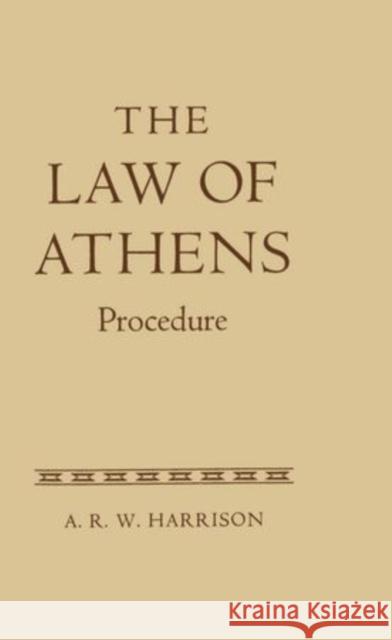The Law of Athens » książka
The Law of Athens
ISBN-13: 9780198251965 / Angielski
This book discusses the various judicial procedures available for remedying wrongs, whether against the state or the individual, in ancient Athens. It begins by identifying and describing the specific functions of the different judicial organs provided by the state to make and enforce judicial decisions. Among these are the magistrates, which are further classified into the archons, the Eleven, the Forty, the eisagogeis, and the nautodikai and the xenodikai. Other organs include the street and market officials, the apodektai, the accounting officers, the military officers, the extraordinary officers, and the demarchs. Cases were settled in homicide courts, the diskasteries, and the ekklesia and the boule. The state also allowed the use of private and public arbitrators, who were subject to certain rules laid down by the state and whose decisions were deemed legally binding. The book then traces the development of the concept of process at law in Athens during the classical period. This period saw the introduction of such concepts as the heliaia, special pleas, documentary evidences, and witness testimonies. Different types of suits and procedural remedies also were made available to Athenians who were wronged and seeking redress. In the final chapter, particular focus is given to the special court proceedings for public wrongs brought before a dikastery by a person seeking redress for an improper administrative act of a magistrate or a public body or seeking a final decision on a person's legal qualification to enter upon some particular status.











